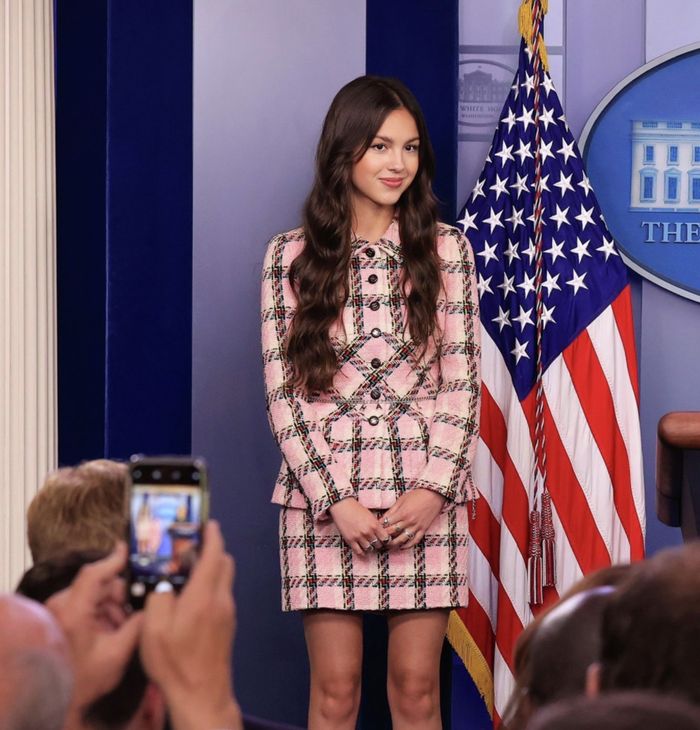The classism of sustainable fashion
Nora Redmond problematises sustainable fashion as exclusionary to the working class, leaving them with no other option than unethical fast fashion

The focus is sustainability. With demands for climate justice and ethical labour practices, more and more are turning towards second-hand and eco-friendly clothes. Shoppers are learning to become conscious of where their purchases were produced, the process involved, and the direct impact this has on the environment. This means avoiding the fast fashion empires of Inditex, Primark and Boohoo - and often shaming those that don’t. With a rapid rise in demand for sustainable options, many simply can’t afford sustainable fashion. Yet if there’s one thing that won’t save the planet, it’s blaming the working class for not having the resources to spend £100 on a jacket made of recycled materials.
“Once a spot for affordable clothing options for those on a budget, [charity shops] have since become gentrified”
Second-hand clothing is rooted in working class history. During the Renaissance, servants would often sell the old clothes of their master to peasants in surrounding areas. By the 19th century “rag and bone men” would collect pre-owned garments to re-spin the material into a cheap yarn called “shoddy”. And by the beginning of the twentieth century, it was poor Jewish and Italian immigrants in Western Europe and North America who sourced used clothes to be resold in second-hand shops. Yet despite being responsible for the second-hand clothing trade and what it has become today, it is the working class who have overwhelmingly been pushed away from what middle and upper-middle class consumers see as a trend.
What’s worse is that it is low-income groups being blamed for resorting to fast fashion. While charity and second-hand shops were once a spot for affordable clothing options for those on a budget, they have since become gentrified, with middle class young people entering the doors in search of designer labels. Although attempts to lower carbon emissions for those who can is important, vilifying those who do not have this option helps no one. It is not, after all, single mothers forced to work extra shifts to afford school uniforms that are contributing to the climate breakdown.
Instead, the role played by influencers who use their platforms to drive their followers towards fast fashion must be considered. These social media stars have the power to shape the style of millions of internet users. By choosing to promote brands such as Pretty Little Thing and Nasty Gal, the impressionable consumer continues to be pushed in the direction of fast fashion. When a Youtuber uploads a video entitled ‘My £1000 Zaful Haul’, excess consumption is encouraged, and fast fashion is glorified.
The problem of constant fast fashion advertising also lies in the sponsorship deals struck between these brands and television shows or celebrities. Reality shows like Love Island have become pivotal advocates of the cheap clothing industry. Contestants are seen wearing new outfits each and every day - and when they leave the villa, they are expected to sign deals with high street brands. Previous Islander Molly-Mae Hague entered into a £1 million contract with Pretty Little Thing. The fact is, these reality shows attract younger audiences, and so it is generally young people that are being subjected to the idea that there is no such thing as too many clothes.
Meanwhile, our ecosystem can only take so many more £5 dresses. If present lifestyle habits continue, the worldwide consumption of clothing will increase from 62 million metric tonnes in 2019 to 102 million tonnes in 2029. This same industry is currently responsible for 10% of global carbon emissions annually. Something has to change. And it is corporations, middle class consumers and advertisers who must drive this change.
When fashion brands are able to charge this little for their products, the problem goes beyond climate change. Manufacturing production is outsourced to countries such as China, Bangladesh and Vietnam, where higher minimum wages can be avoided. The race continues for companies to find the cheapest labour they possibly can: workers desperate for wages will accept any salary, ultimately leading to mass exploitation.
The working class may buy fast fashion items, but the effects of this industry on the planet are overwhelmingly caused by the middle class and corporations. Fashion is a class issue - it has always been a class issue. Now, not only are those who have played a key part in the history of the sustainable shopping trade no longer able to afford it, they are being condemned for turning to cheaper alternatives. Environmentalism is not an excuse to perpetuate privileged notions of eco-friendly shopping being a universal custom. Sustainable fashion needs to become inclusive, and this starts with recognising the intrinsic elitism surrounding this movement.
 News / Hundreds of Cambridge academics demand vote on fate of vet course20 February 2026
News / Hundreds of Cambridge academics demand vote on fate of vet course20 February 2026 News / Judge Business School advisor resigns over Epstein and Andrew links18 February 2026
News / Judge Business School advisor resigns over Epstein and Andrew links18 February 2026 News / Petition demands University reverse decision on vegan menu20 February 2026
News / Petition demands University reverse decision on vegan menu20 February 2026 News / University Council rescinds University Centre membership20 February 2026
News / University Council rescinds University Centre membership20 February 2026 News / CUCA members attend Reform rally in London20 February 2026
News / CUCA members attend Reform rally in London20 February 2026










